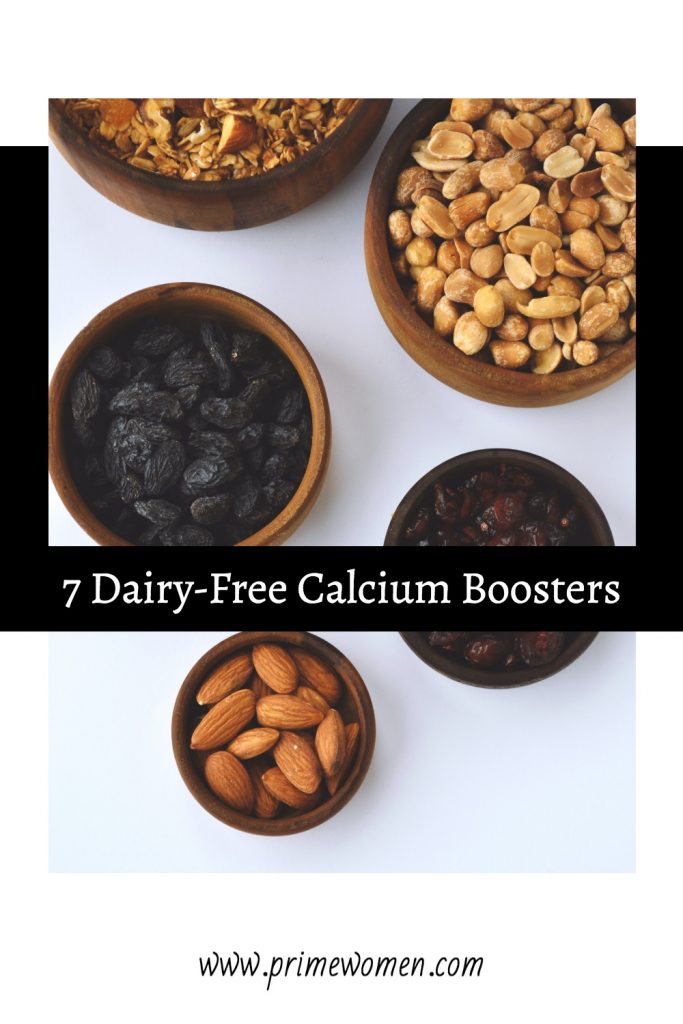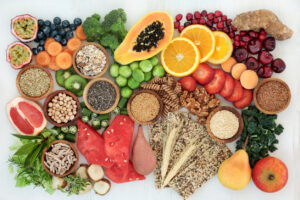Osteoporosis is a bone condition that affects 1 in 3 women over the age of 50. It develops through a lack of calcium. Not only does this condition increase the chance of a skeletal fracture occurring in the first place, but it also makes it more difficult to recover from fractures when they occur. Eventually, those with osteoporosis may develop small compression cracks along their spinal column, leading to a reduction in height.
While some factors, such as genetics and menopause, are out of your control, others are. Calcium is an important mineral for bone health, and while dairy products are a well-known source of calcium, they are not the only sources available. Learn more about fighting osteoporosis with calcium boosters, what causes osteoporosis, and how to help prevent it while still avoiding dairy products.
What is Osteoporosis?
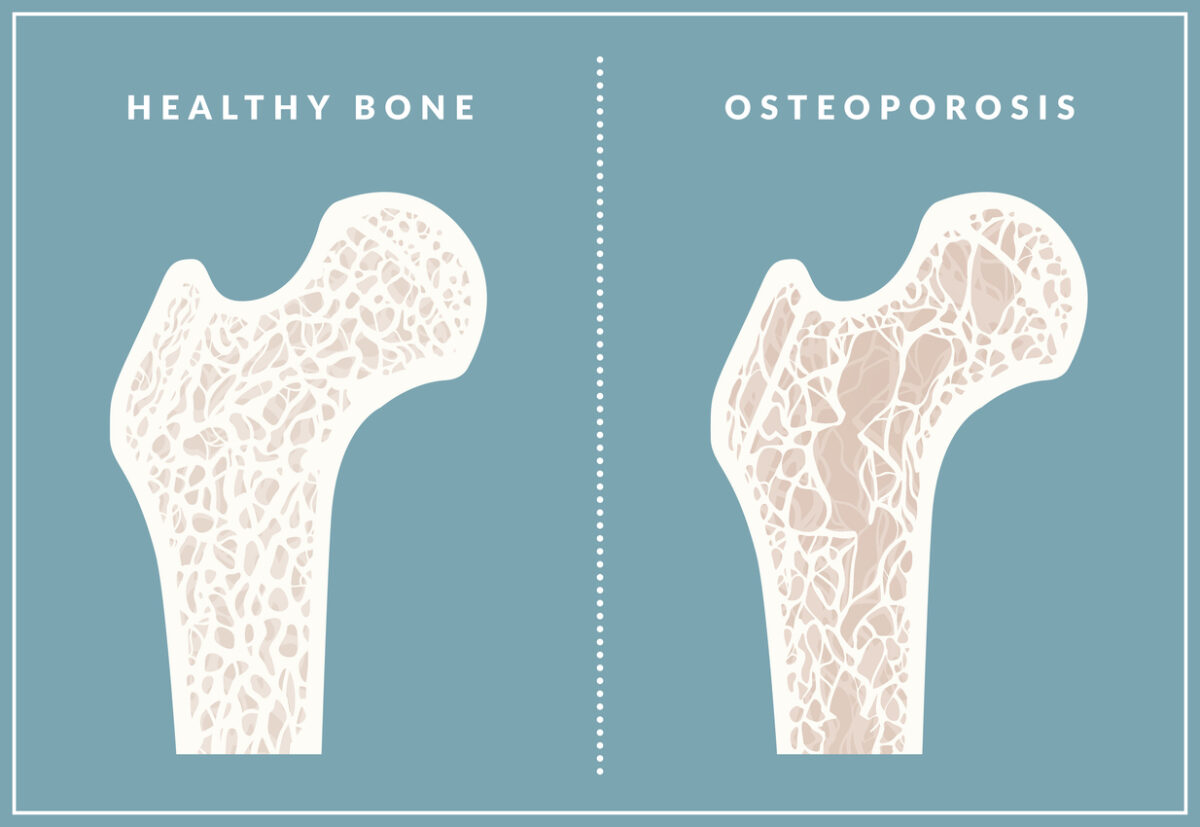
Although the bones of adults may appear to be a fixed, unchanging framework, the skeleton is composed of living tissue. The small amounts of bone in the skeletal system are continually broken down and reformed, a process known as remodeling. Remodeling is an important process that helps to renew bones damaged by normal wear and tear and strengthen the skeleton.
As we age, this process often becomes unbalanced, with more bone being broken down than being reformed. This can lead to brittle, easy-to-break bones. In many cases, the reduction of estrogen during and after menopause further impairs the reformation of bone for women. Fighting osteoporosis with calcium-rich foods can help prevent it.
Fight Osteoporosis with Calcium and Dairy Products
Dairy products contain a great deal of calcium. One cup of milk has around 27-35% of the recommended daily intake (RDI) for an adult, depending on whether it is nonfat, low-fat, or whole. Milk also contains high quantities of phosphorous. Although some phosphorus is crucial for bone health, excessive dietary phosphorus can have an adverse effect when it binds with calcium.
Even for those of us who can process dairy, it pays to diversify when it comes to vitamins and minerals. While dairy is often cited as a great way to strengthen the skeletal system, a few studies, such as this Swiss study, have indicated that consuming copious quantities of milk may have a slightly adverse effect.
Other Sources of Calcium
Dairy products are a valuable source of calcium, a vital component of bone health, and are often fortified with vitamin D. This vitamin is essential to bone health; without it, our bodies cannot absorb calcium. However, for individuals who are allergic to dairy or are lactose intolerant, dairy products aren’t a viable option.
Fortunately, there are many other foods with comparable copious amounts of calcium, however, some of which are more bio-available than milk. Here are seven dairy-free foods that can boost your calcium levels and help strengthen your bones.
1. Sardines

Sardines, when they have bones, are another fantastic source of calcium. Just one 3.75-ounce can of sardines has approximately 350 mg, 35% of the RDI. This low-mercury fish is also a natural source of vitamin D and magnesium, which are essential to healthy bones.
2. Winged Beans (Psophocarpus tetragonolobus)

Most beans have at least a little calcium, but this strange-looking legume packs a serious punch. Known by many names, such as the goa bean, Manila bean, four-angled bean, four-cornered bean, princess bean, asparagus bean, and dragon bean, one cup of boiled winged beans contains roughly 244 mg of calcium.
3. Amaranth Greens
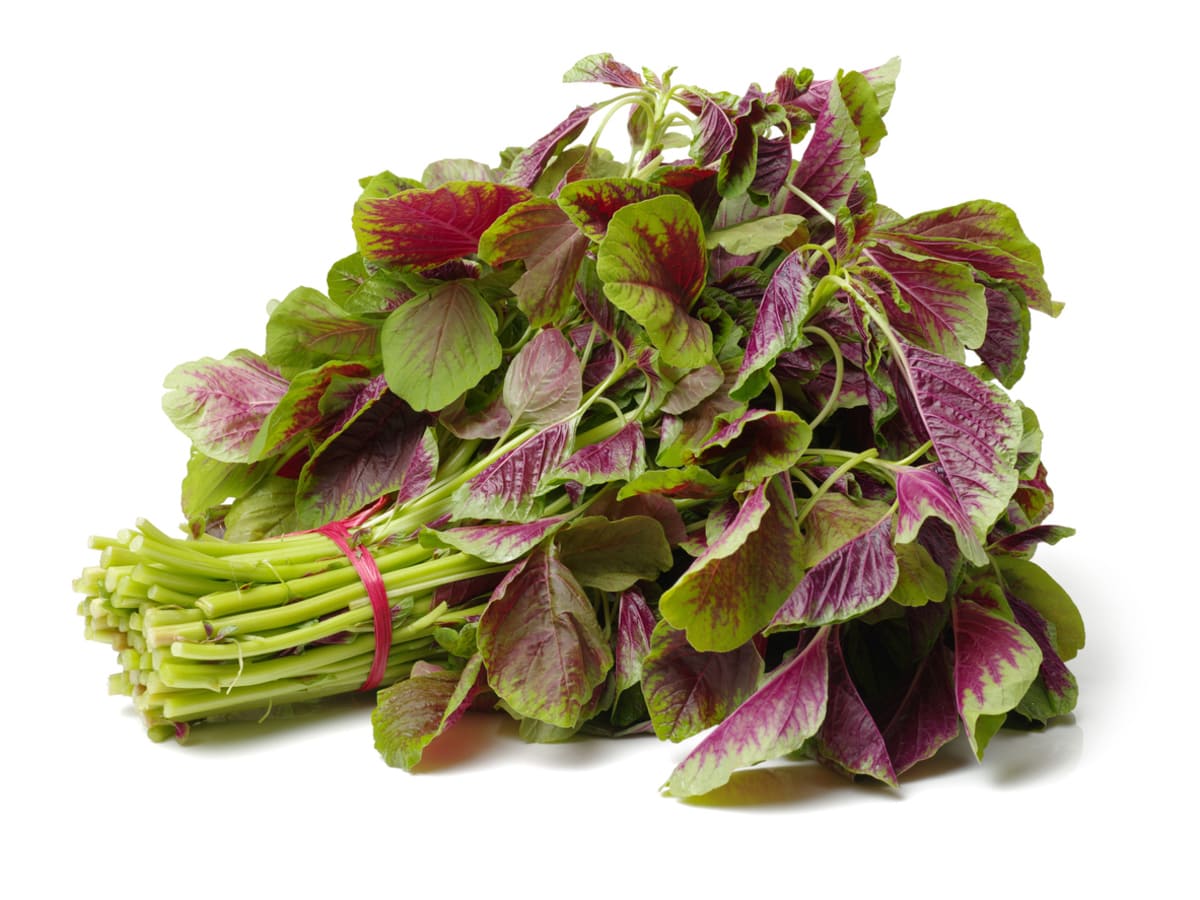
Many greens have an abundance of calcium, including collard greens, spinach, and kale, but the leaves of the Amaranth plant are positively packed with calcium, with just one cup containing 215 mg of the mineral. Amaranth leaves are a great way to get other essential vitamins and minerals as well. They are a substantial source of dietary iron as well as being exceptionally high in vitamins A and C.
4. Dried Figs

It will delight fans of dried figs to discover that a single cup contains approximately 300 mg of calcium. These sweet treats are also rich in copper, vital for metabolism and the formation of blood cells, and fiber, promoting positive digestive health. Not only can we eat them raw, as a snack, or in a salad, but they also make delectable desserts.
5. Sesame Seeds
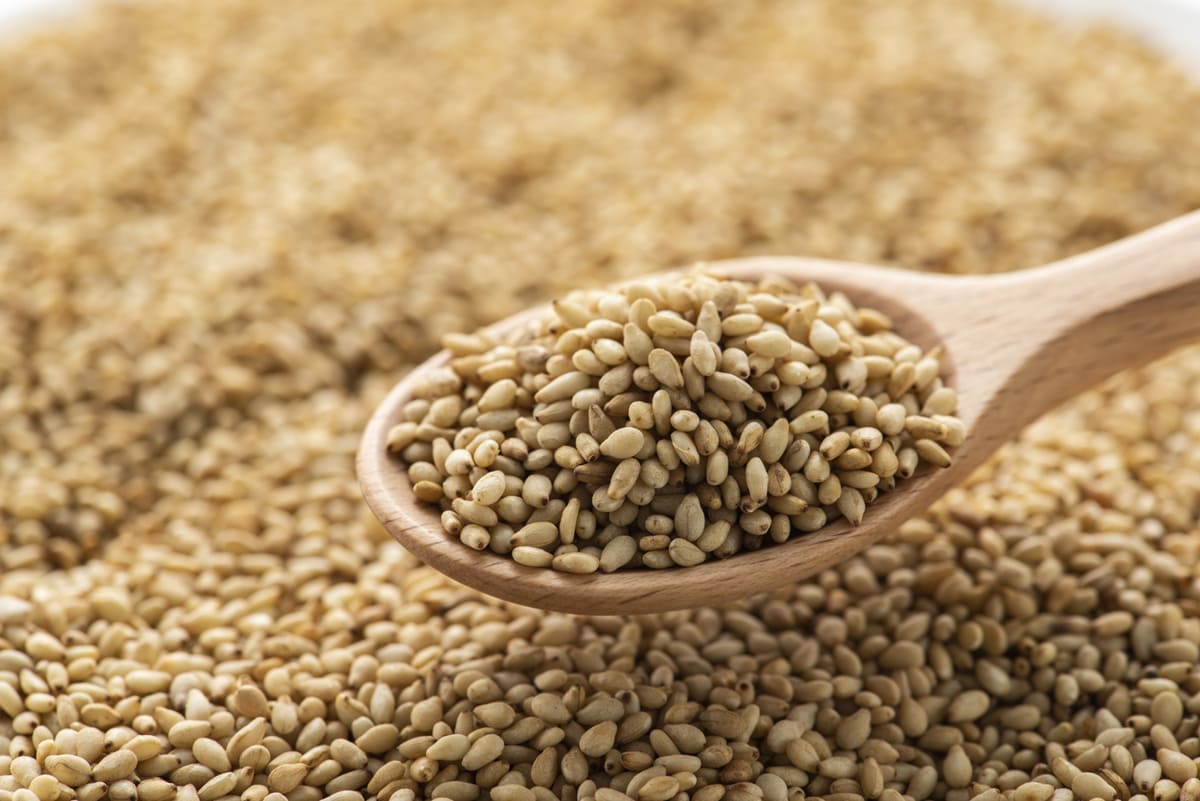
Unhulled sesame seeds are an incredible source of calcium, as well as other bone-strengthening minerals like copper and zinc. At 88 mg of calcium per tablespoon, there is more calcium in four tablespoons of sesame seeds than in a full 8 oz cup of whole milk! You can enhance their nutty flavor by lightly roasting them before sprinkling them on salads and other dishes.
6. Chia Seeds

Chia seeds are even more crammed with calcium than sesame seeds. They contain around 179 mg of calcium per ounce. Just two ounces of chia seeds have more calcium than a glass of milk. These small black seeds also provide a first-rate source of high-quality protein and omega-3s and can be sprinkled on salad, added to porridge, included in baked goods, or even used to thicken sauces.
7. Almonds

Almonds have many health benefits. They are high in protein, healthy fats, manganese, and magnesium. Not only do they contain around 375 mg of calcium per cup, but almonds can also fight bad cholesterol, are portable, and can be eaten raw by the handful. You can also incorporate the calcium-boosting power of almonds into your life by drinking almond milk or incorporating almond flour into your recipes.
Final Thoughts
While dairy products are a good source of calcium for those who enjoy them, they are not the only source. Many flavorful and healthy foods can help boost your calcium levels and protect your bones from the damage caused by osteoporosis. Fight osteoporosis with the calcium boosters listed above to improve your bone health in the long run.
Read Next:
The Six Essential Nutrients And Why You Need Them
7 Nutrient-Packed Recipes That Make Healthy Eating a Breeze
Why Being Part of a Group is an Effective Way to Lose Weight
